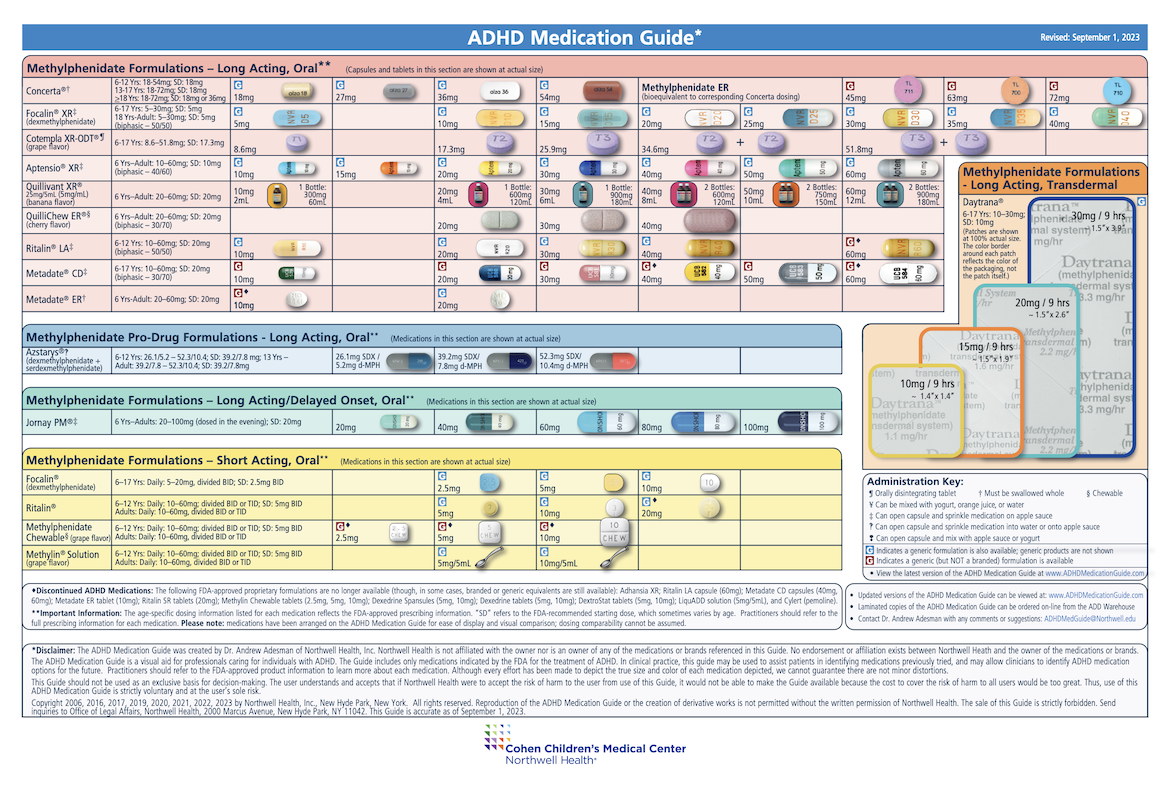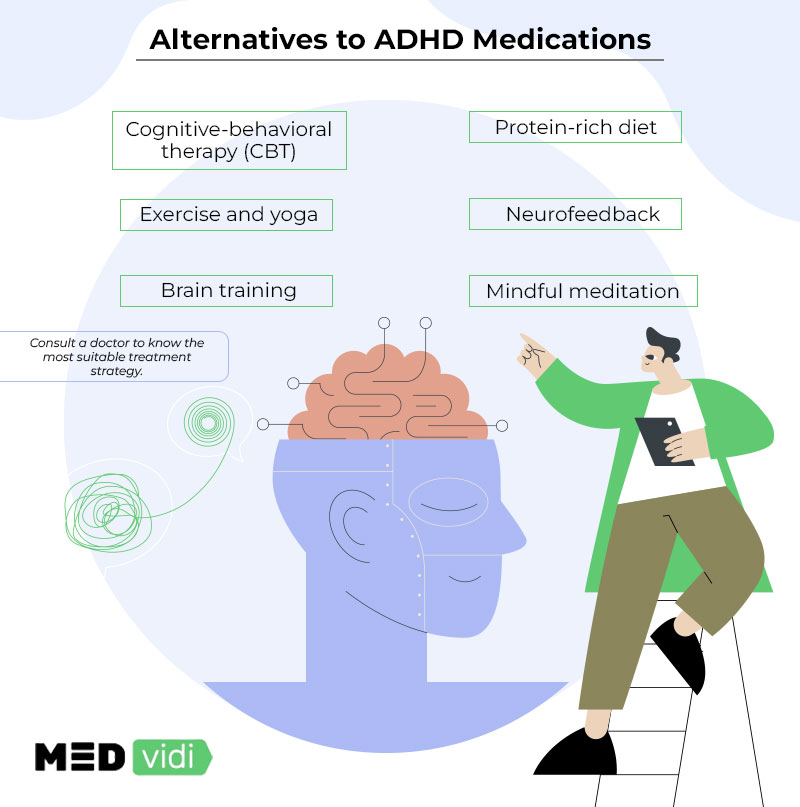Medication Management Programs for Safe Treatment Plans
Medication Management Programs for Safe Treatment Plans
Blog Article
The Advantages of Tailored ADHD Therapy Strategies for Better Results
The application of customized ADHD therapy plans has arised as a critical method in improving therapeutic outcomes for people influenced by this condition (ADHD treatment). By recognizing the unique manifestations of ADHD in each individual, these customized interventions advertise higher engagement and motivation, inevitably leading to much more effective coping strategies.
Recognizing ADHD Irregularity
Although Attention-Deficit/Hyperactivity Disorder (ADHD) is frequently regarded as a particular condition, its indications can vary considerably amongst people. This variability is affected by a variety of factors, consisting of age, gender, existing side-by-side conditions, and environmental contexts. For instance, children with ADHD might display hyper habits, while adults might predominantly fight with attention deficiencies. Gender distinctions likewise play a duty, as males are extra often detected with ADHD and typically display a lot more obvious signs, whereas ladies may provide with much less apparent inattentiveness.
Moreover, people with ADHD might experience a spectrum of emotional and behavioral difficulties, such as anxiousness or opposite defiance, that can make complex diagnosis and treatment. The communication of these variables can lead to diverse experiences of ADHD, necessitating a nuanced understanding of the condition. It is likewise worth keeping in mind that ADHD can provide in a different way throughout numerous social contexts, affecting just how symptoms are recognized and dealt with. This understanding highlights the value of acknowledging ADHD as a complex problem, which asks for individualized strategies to therapy that consider the one-of-a-kind demands and experiences of each person.
Secret Components of Personalization
Individualized ADHD therapy plans are based in numerous essential elements that ensure reliable administration of the condition. A thorough evaluation is important, involving standard rating ranges, interviews, and behavior observations. This extensive evaluation permits clinicians to recognize the individual's one-of-a-kind signs, strengths, and obstacles.
Second, the participation of several stakeholders, consisting of parents, educators, and the individual, adds to an all natural view of the individual's needs. Cooperation fosters an encouraging environment that can adjust to the person's context and lifestyle.
Third, treatment plans must be flexible and adaptable, permitting for modifications based on recurring responses and the individual's progressing needs. This flexibility enables the combination of numerous therapeutic techniques, such as behavior interventions, psychoeducation, and medication administration.
In addition, cultural and contextual aspects must be thought about. Identifying the person's background, values, and preferences makes sure that the therapy matters and respectful.
Finally, normal follow-ups and assessments are important to check progress and make required modifications. By concentrating on these vital components, personalized ADHD treatment plans can considerably improve the efficiency of treatments, causing boosted end results for individuals with ADHD.
Enhanced Engagement and Motivation
To successfully advertise improved interaction and motivation depressed spouse in individuals with ADHD, it is vital to include approaches that reverberate with their passions and toughness. Individualized therapy plans that line up with an individual's passions can lead to increased participation in restorative activities, fostering a sense of possession and interest for the process.
Utilizing interactive and creative methods can also considerably enhance inspiration. Integrating gamification elements or real-world applications of abilities can make tasks more enticing and relevant. This not just catches attention yet likewise reinforces finding out through delightful experiences.
Additionally, setting possible and significant objectives tailored to the person can boost motivation. When individuals see their progress in the direction of personally considerable objectives, they are extra likely to stay engaged. Normal feedback and acknowledgment of accomplishments can additionally sustain inspiration, developing a positive responses loophole that motivates ongoing initiative.
Finally, fostering an encouraging setting where people really feel comprehended and valued can considerably impact their engagement degrees. When treatment strategies are created collaboratively, incorporating input from the individual, they are a lot more most likely to feel bought their trip, eventually bring about improved outcomes in managing ADHD.
Improved Coping Approaches
Establishing boosted coping methods is vital for individuals with ADHD, as it furnishes them with efficient devices to navigate everyday difficulties. An individualized therapy plan permits for the identification of certain coping devices customized to the individual's distinct needs and conditions - ADHD treatment. Methods such as mindfulness, time monitoring skills, and business approaches can be incorporated right into day-to-day regimens, cultivating a sense of control and decreasing anxiety
Mindfulness methods, including meditation and deep-breathing workouts, help people with ADHD focus their interest and manage their emotions. Time administration approaches, such as using timers or breaking jobs right into smaller, workable steps, web link can mitigate feelings of bewilder. Additionally, organizational tools like coordinators and checklists can improve performance and responsibility.
Lasting Favorable End Results
Executing customized ADHD treatment plans can lead to considerable lasting favorable end results for individuals. These customized approaches, which consider special signs, preferences, and life circumstances, help with much more efficient monitoring of ADHD symptoms over time. By concentrating on the details needs of the individual, these strategies enhance adherence to therapy procedures and foster higher engagement in therapeutic tasks.

Moreover, individualized therapy strategies can significantly reduce the danger of comorbid conditions, such as stress and anxiety and anxiety, which are typically related to ADHD. Early treatment and constant assistance help people build durability and coping methods, promoting total psychological wellness.
Inevitably, the long-term positive end results of customized ADHD therapy plans not just improve the top quality of life for people however also add to their general well-being and success in different life domains. This all natural approach emphasizes the importance of individualized care in taking care of ADHD effectively.
Conclusion

Report this page